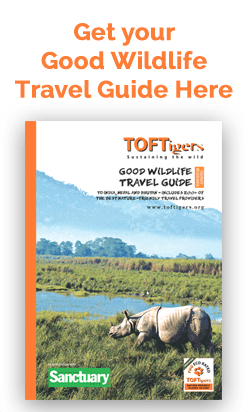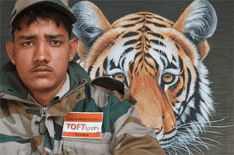Julian Matthews
Founder / Chairman
Julian founded TOFTigers in 2004 in response to plummeting tiger numbers across Asia. He remains the main driver of the organisation.
Julian believes that wildlife tourism is a critical force in saving wildlife, gaining community support and ensuring wilderness conservation and is passionate about advocating and helping to develop a more responsible and sustainable approach to ensuring it’s used for wildlife and habitat preservation across the Indian subcontinent and other tiger bearing landscapes.
Julian was originally the Founder Director of an award winning nature and safari travel business, now called Steppes Discovery, part of the Steppes Travel Group. This ‘excuse for a job’ took him across the globe, visiting wildernesses areas on seven continents from India to the Arctic, from the Galapagos to Rwanda, designing and developing new wildlife tours and safaris programmes, in cooperation and support of a host of wildlife projects alongside conservation agencies and their wildlife experts and host communities. The company raised over £1.5M for wildlife conservation. In 2004 his concern at the Tiger’s continuing demise, prompted him to launch the TOFTigers campaign to get the expanding nature tourism sector to support better and more sustainable nature tourism practices in Tiger parks across the Indian subcontinent. Today it has over 220 travel businesses involved – from around the globe.
Read More
Read Less











